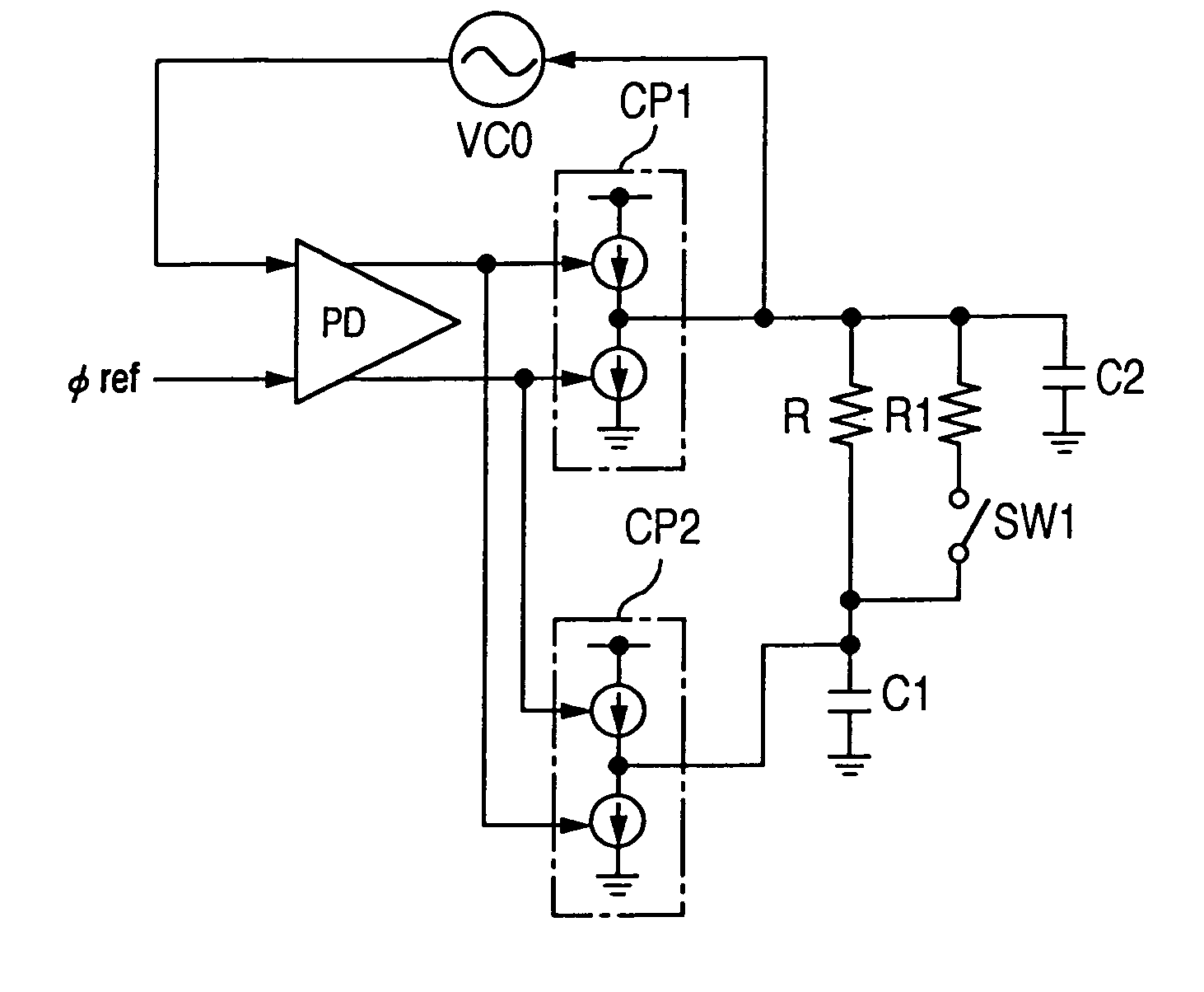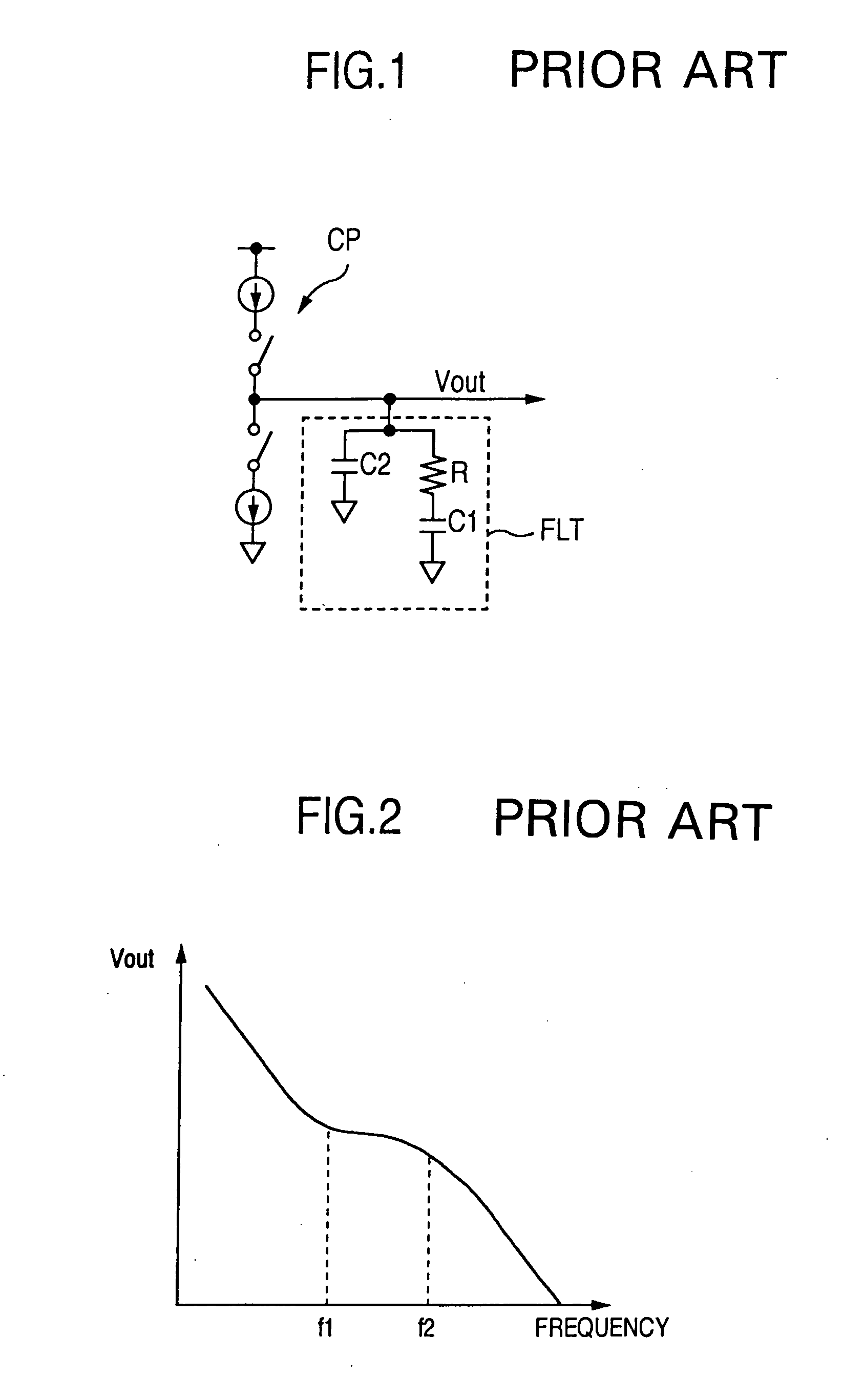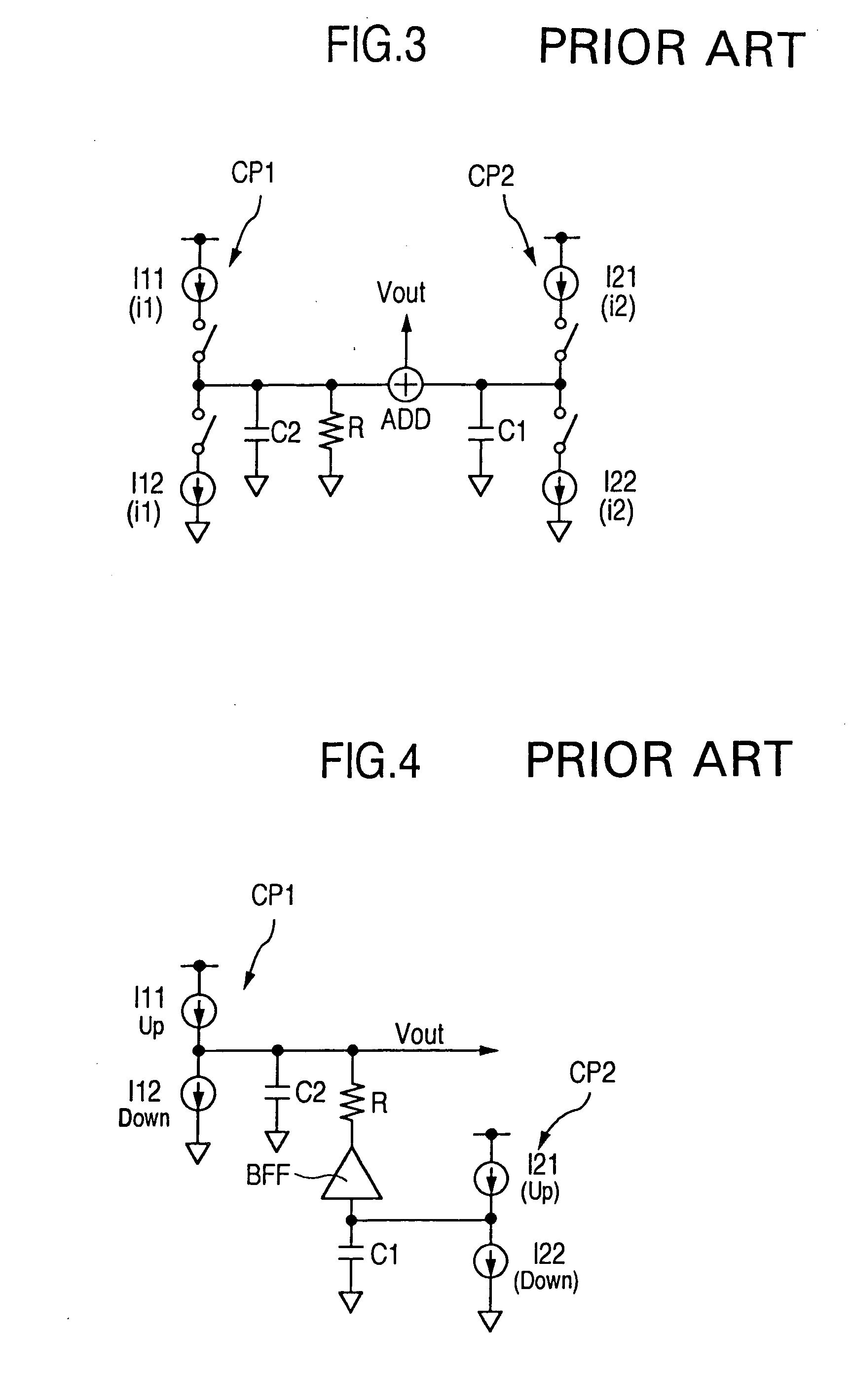Semiconductor integrated circuit having built-in PLL circuit
a technology of integrated circuits and semiconductors, applied in the field of phase locked loops, can solve the problems of difficult integration of the capacitive element cb>1/b> itself on the chip, and achieve the effects of preventing an increased phase error of the pll loop, less temperature dependence, and increasing side-band spuriousness
- Summary
- Abstract
- Description
- Claims
- Application Information
AI Technical Summary
Benefits of technology
Problems solved by technology
Method used
Image
Examples
first embodiment
[0044]FIG. 6 illustrates one embodiment of a loop filter which can be provided on a PLL loop. The loop filter in this embodiment comprises a first charge pump CP1 which is made up of regulated current sources I11, I12, and switches SW11, SW12 connected in series with the regulated current sources I11, I12, respectively; a capacitor C2 connected between an output node N1 of the charge pump CP1 and a ground point; a resistor R and a capacitor C1 connected between the output node N1 and ground point in parallel with the capacitor C2; and a second charge pump CP2 which is made up of regulated current sources I21, I22, and switches SW21, SW22 connected in series with the regulated current sources I21, I22, respectively, and has an output node N2 connected to a connection node N3 at which the resistor R is connected to the capacitor C1.
[0045] In the loop filter (FIG. 6) of this embodiment, the switch SW21 for charging the second charge pump CP2 is controlled on / off by a down signal DOWN ...
second embodiment
[0058] Generally, the voltage controlled oscillator (VCO) suffers from a varying oscillation frequency as the supply voltage fluctuates. To prevent the varying oscillation frequency, the present invention supplies a transmission oscillator circuit (TXVCO) with a supply voltage from a voltage regulator. FIG. 10 illustrates one embodiment of a voltage regulator for supplying a transmission oscillator circuit (TXVCO) with a supply voltage.
[0059] The voltage regulator illustrated in FIG. 10 comprises a regulator unit 110 for generating a desired supply voltage using a base-emitter voltage Vbe of a bipolar transistor; and a temperature detector unit 120 for generating a control signal to the regulator unit 110. Conventional voltage regulators typically have a band gap reference circuit. The use of the band gap reference circuit permits the voltage regulator to generate a stable supply voltage without source voltage dependency regardless of changes in temperature. However, in a particula...
third embodiment
[0082]FIG. 14 illustrates one embodiment of a phase comparator circuit which is applied with the voltage from the voltage regulator in the foregoing embodiment for operations. The phase comparator circuit 236 in this embodiment comprises a signal comparator unit (left-hand side circuit) 361 and an output unit (right-hand side circuit) 362. As illustrated in FIG. 14, the signal comparator unit 361 comprises a cascaded configuration of differential circuits, wherein a current regulating transistor Q30 is connected to emitters of a lower differential transistor pair Q31, Q32, and differential transistor pairs Q33, Q34 and Q35, Q36 are connected to collectors of the lower differential transistor pair Q31, Q32. The transistors Q33, Q35 have their collectors coupled to each other, which are then connected to a common load transistor Q37. Likewise, the transistors Q34, Q36 also have their collectors coupled to each other, which are connected to a common load transistor Q38.
[0083] In this ...
PUM
 Login to View More
Login to View More Abstract
Description
Claims
Application Information
 Login to View More
Login to View More - R&D
- Intellectual Property
- Life Sciences
- Materials
- Tech Scout
- Unparalleled Data Quality
- Higher Quality Content
- 60% Fewer Hallucinations
Browse by: Latest US Patents, China's latest patents, Technical Efficacy Thesaurus, Application Domain, Technology Topic, Popular Technical Reports.
© 2025 PatSnap. All rights reserved.Legal|Privacy policy|Modern Slavery Act Transparency Statement|Sitemap|About US| Contact US: help@patsnap.com



